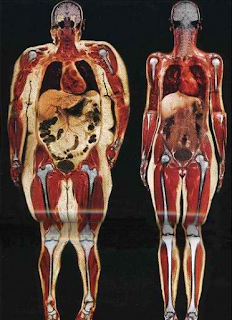Is Your Favorite Food Making You Sick?
Author: Oksana Aron, MD Source: Weight Loss NYC Jan 8, 2024Are your favorite foods making you sick?
A study in the journal Nature suggests that emulsifiers—commonly used ingredients in many favorite processed foods—may be interfering with bacteria in our digestive tracts and causing increases in metabolic syndrome, inflammatory bowel disease, and obesity.

Ingredients such as lecithin, carrageenan, polysorbate80, polyglycerols and xanthan and other “gums” improve the texture and shelf-life of many supermarket foods and keep ingredients such as oils and fats from separating. They are found in many ice creams, baked goods, salad dressings, veggie burgers, non-dairy milks and hamburger patties.
Several commonly used ingredients in many popular processed foods could be interfering with bacteria in our digestive tracts yielding increases in obesity, metabolic syndrome, IBS and more. Dr Oksana Aron can help you address many of these health concerns.
In the study, when fed emulsifiers, the mice who had normal immune systems developed mild intestinal inflammation and a metabolic disorder that led them to eat more. They became obese, hyperglycemic and insulin resistant. The mice with abnormal immune systems developed chronic colitis.
Food additives could be inducing inflammation
Emulsifiers seem to change the gut microbiota (or environment) and how bacteria interact with the intestine. This paves the way for inflammation. While emulsifiers may not be the sole cause of the rise in obesity, they could very well be a factor.
Many emulsifiers and food additives are considered safe by the US Food and Drug Administration (FDA). However, the FDA has not determined safe levels of consumption, particularly because people consume emulsifiers in so many different foods.
Additional studies on humans are needed to better understand how emulsifiers impact humans.
Do you need to lose weight?
Oksana Aron, M.D. is a bariatric physician and internist, specializing in medical treatment of overweight and obese persons:
“Through our comprehensive program, many individuals have lost well in excess of 20% of their initial body weight using a combination of appetite suppressants and a low calorie diet, while eating just regular grocery store foods.”
You can visit Dr. Oksana Aron’s website at WeightLossNYC.com

Acknowledgements
- Sima Michaels Dembo, MPH, Public Healthcare consultant and writer is a guest contributor to this blog.
- Chassaing, Benoit, et. al.,
Dietary emulsifiers impact the mouse gut microbiota promoting colitis and metabolic syndrome,
Nature, 519, 92-96, Published online 2/25/15. Accessed 3/5/15. - Grossman, Elizabeth.,
How Emulsifiers Are Messing with Our Guts (and Making Us Fat),
Civil Eats, February 25, 2015. Accessed 3/5/15.
Labels: bronx, brooklyn, diabetes, diet, fda, health, metabolic syndrome, ny, obese




